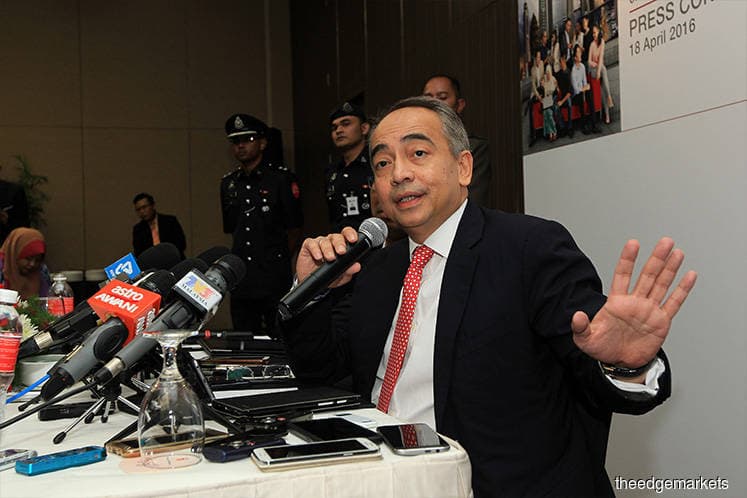
This article first appeared in The Edge Malaysia Weekly on February 12, 2018 - February 18, 2018
AT the time of this interview with CIMB Group Holdings Bhd chairman Datuk Seri Nazir Razak, the global markets were in turmoil. The Dow Jones Industrial Average had tumbled 500 points in intraday trading, leading to a selldown on most Asian markets. Thus, it seemed timely to ask the veteran banker — with 29 years of banking experience under his belt — about the financial markets and his views on moving out of the low interest rate environment.
Here is an excerpt from the interview.
The Edge: Are there any concerns about the 10-year stock market cycle in Asean?
Datuk Seri Nazir Razak: I think we need to remember that we learnt very hard lessons from the 1997 Asian financial crisis. You look at our nation’s reserves and the balance sheets of the banks now — they are much stronger and pretty robust actually.
You know with crises, they never come exactly the same way. But at the core of it are the banks. Can they withstand big losses, volatility, and so on? And I think today, Asean banks are extremely strong.
I don’t know why but every 10 years, everyone feels that the market will crash but I don’t see it in the offing. However, there is a fine line between optimism and exuberance. At some point, one can get carried away.
If you look at the data today, this normalisation of interest rates, we’re still at the early phase of it. If you look at the US long bond yields and CDS spreads, they suggest that the markets have not properly adjusted to what’s coming with interest rates.
So, as markets adjust, my only worry is that there could be people who are unprepared or some things that could be disrupted because of a misreading of where rates are going to go. But I don’t see a crash.
So, you wouldn’t agree with what former US Fed chairman Alan Greenspan said about there being two bubbles — stock market and bond market?
Well, he’s obviously slightly smarter than I am but I can’t see it happening. But then, he should have seen the 2007 crash.
The normalisation of interest rates is something new for everyone because we’ve been in a low interest rate environment for so long. As we move out of it, how do you think this will impact Malaysia’s debt market?
Higher rates will have consequences for how you discount future earnings. So today, for instance, if markets are really misreading the rate at which interest rates will increase, they could be too bullish, right?
Then when the cost of money is not so cheap anymore, it may not be so easy for fintechs to raise money as they used to. So, things will change. You know when the cost of money is zero, people tend to throw money around.
Does that mean that raising funds will become more difficult going forward?
Yes. Some countries had negative interest rates, so they were quite happy to give their money to businesses. But now they say, ‘Actually I can just keep my money passive and get a good yield’.
Could you share the outlook for CIMB’s investment banking business?
It’s a traditional area of strength for CIMB. With a stronger economic environment, there will be more deals to do.
What will drive the activity locally?
In recent times, it has been driven by PNB (Permodalan Nasional Bhd), GLC reforms. There have been a lot of deals from PNB. I think the next phase is about the incumbent companies having to rethink how to cope with technology and such new competition, if you like. So that could be driving deals going forward. You may be getting mergers and acquisitions because of that.
Save by subscribing to us for your print and/or digital copy.
P/S: The Edge is also available on Apple's AppStore and Androids' Google Play.